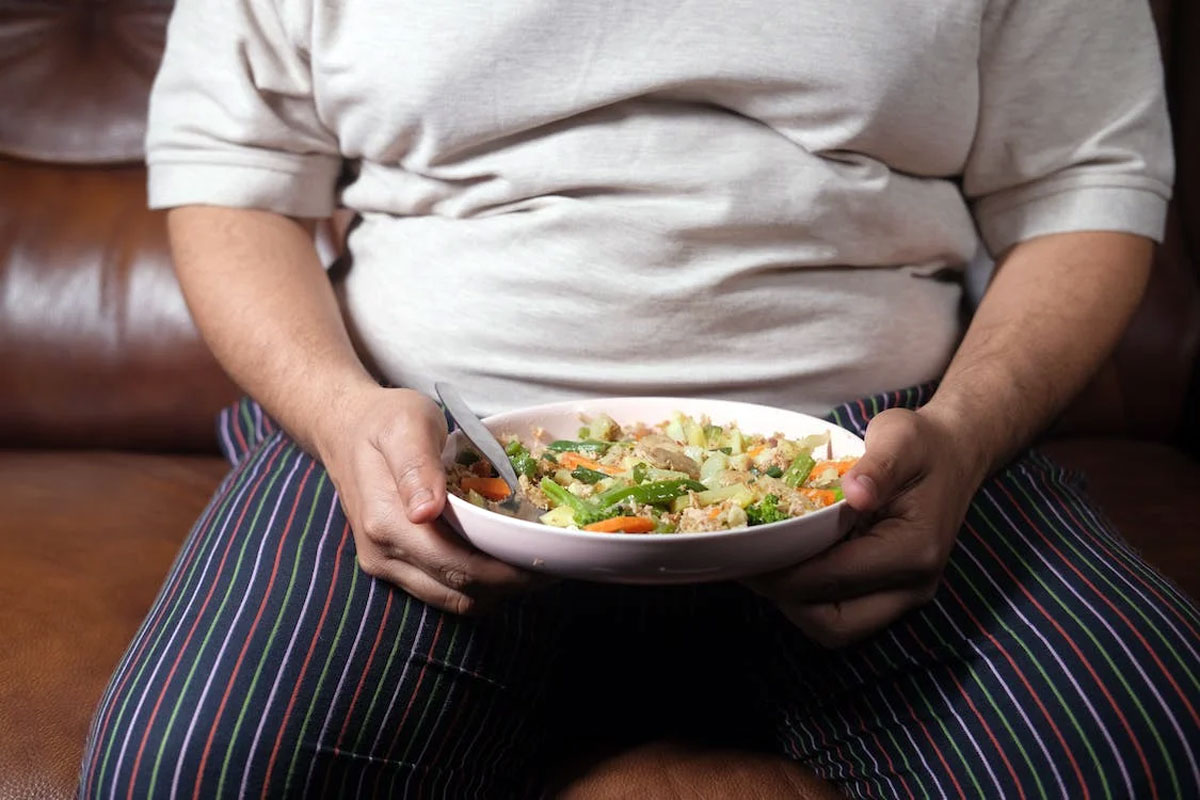Blood sugar levels typically rise after eating (postprandial hyperglycaemia) and then gradually decrease as the glucose is absorbed and utilised by the body, says rediffGURU Komal Jethmalani.
- You can post your health-related questions for rediffGURU Komal Jethmalani HERE.

What is the normal blood sugar level for adults?
Is there a way you can reduce high blood sugar and manage diabetes and thyroid?
What foods can help you lower your cholesterol and blood pressure?
rediffGURU Komal Jethmalani is a practising dietician and nutritionist with over 26 years of experience. She specialises in weight loss and diabetes management.
- You can post your questions for rediffGURU Komal Jethmalani HERE.
Anonymous: Hi, I am 66 years old and my HbA1C is 7.4.
My fasting glucose is 145 and PP is 210. I weigh 61 kg.
I walk regularly in the morning and evening for 45 minutes each. How can I reduce my sugar levels?
Walking is an excellent aerobic activity that will help in lowering blood sugar levels by increasing your metabolic rate. However, a balanced and healthy diet will help control high blood sugar levels.
Make healthy choices of complex carbohydrates like vegetables, whole grains and fruits, and avoid highly refined carbohydrates like white bread, pasta and sugary foods which can cause blood sugar spikes.
Include protein in every meal and eat at regular intervals. Include healthy fats in your diet and follow aerobic and weight training exercises.
Pankaj: How to manage my blood sugar and thyroid. H1bc 9 and thyroid is 6.2.
An HbA1c level of 9 is indicative of uncontrolled blood sugar.
It is unclear which parameter of the thyroid function test is 6.2. It is advisable to consult your physician for further advice.
Start with lifestyle modifications and follow healthy eating habits.
Choose carbohydrates wisely, such as those from vegetables, whole grains and fruits, while avoiding highly refined carbohydrates like white bread, pasta and sugary foods.
Maintain a healthy weight and follow a consistent exercise schedule.
Reduce the intake of foods high in added sugars and processed foods to prevent blood sugar spikes.
Focus on a diet rich in fruits, vegetables, whole grains, lean proteins and healthy fats.
A balanced diet helps in managing blood glucose levels and body weight.
Anonymous: My sugar fasting is 225 and post lunch is 302 after two hours, when I test my sugar level after 5 to 6 hours it is 120. What is the reason?
Blood sugar levels typically rise after eating (postprandial hyperglycaemia) and then gradually decrease as the glucose is absorbed and utilised by the body.
A reading of 120 mg/dL after 5 to 6 hours suggests that the body has effectively lowered the blood sugar from the post-meal peak.
If you are on insulin or other glucose-lowering medications, the drop in blood sugar could be due to the action of these medications.
Follow healthy lifestyle modifications to maintain normal blood sugar levels.
Consume foods with a lower glycaemic index, which are digested more slowly.
Include high fibre foods, particularly the soluble fibre found in oats, fruits and legumes which can help lower blood sugar levels by improving insulin sensitivity.
Eat at regular times and maintain a regular regimen of aerobic and weight training exercises.
Avoid sugary and processed foods.
- You can post your questions for rediffGURU Komal Jethmalani HERE.
Disclaimer: All content and media herein is written and published online for informational purposes only. It is not a substitute for professional medical advice. It should not be relied on as your only source for advice.
Please always seek the guidance of your doctor or a qualified health professional with any questions you may have regarding your health or a medical condition. Do not ever disregard the advice of a medical professional, or delay in seeking it because of something you have read herein.
If you believe you may have a medical or mental health emergency, please call your doctor, go to the nearest hospital, or call emergency services or emergency helplines immediately. If you choose to rely on any information provided herein, you do so solely at your own risk.
Opinions expressed herein cannot necessarily provide advice to fit the exact specifics of the issues of the person requesting advice.










